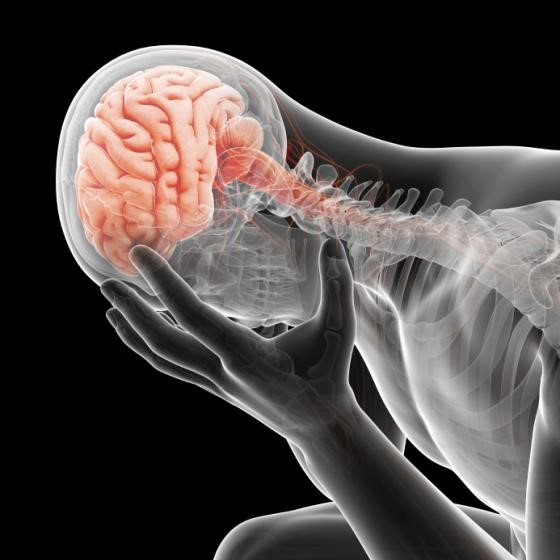 Clinical depression is associated with a 30% increase of inflammation in the brain, according to a new study published in JAMA Psychiatry.
Clinical depression is associated with a 30% increase of inflammation in the brain, according to a new study published in JAMA Psychiatry.
Inflammation is the immune system’s natural response to infection or disease. The body often uses inflammation to protect itself, such as when an ankle is sprained and becomes inflamed, and the same principle also applies to the brain. However, too much inflammation is unhelpful and can be damaging.
Increasingly, evidence is suggesting that inflammation may drive some depressive symptoms, such as low mood, loss of appetite and reduced ability to sleep.
What the new study set out to investigate was whether inflammation is a driver of clinical depression independent of other physical illness.
Researchers from the Centre for Addiction and Mental Health’s (CAMH) Campbell Family Mental Health Research Institute in Toronto, Canada, used positron emission tomography (PET) to scan the brains of 20 patients with depression and 20 healthy control participants.
In particular, the team closely measured the activation of microglia – immune cells that play a key role in the brain’s inflammatory response
The PET scans showed significant inflammation in the brains of the people with depression, and the inflammation was most severe among the participants with the most severe depression. The brains of people who were experiencing clinical depression exhibited an inflammatory increase of 30%.
Previous studies have examined markers of inflammation in the blood of depressed people, in an attempt to solve the “chicken or egg” debate of whether inflammation is a consequence of or contributor to major depression.
 For instance, in 2012, a study conducted by Duke University Medical Center researchers and published in Biological Psychiatry found an association between the number of cumulative depressive episodes experienced by study participants and increased levels of an inflammation marker in their blood called C-reactive protein (CRP).
For instance, in 2012, a study conducted by Duke University Medical Center researchers and published in Biological Psychiatry found an association between the number of cumulative depressive episodes experienced by study participants and increased levels of an inflammation marker in their blood called C-reactive protein (CRP).
“Our results support a pathway from childhood depression to increased levels of CRP, even after accounting for other health-related behaviors that are known to influence inflammation. We found no support for the pathway from CRP to increased risk for depression,” said Duke study leader Dr. William Copeland.
Source: Medical News Today
